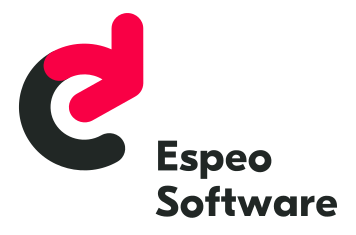In a previous post, we talked about the global state of the cryptocurrency market. We answered one of the central questions of every blockchain startup: is fundraising through ICOs dead ? Long story short: absolutely not. The market is just evolving, and it’s not a bad thing. Eager to invest in more regulated instruments, investors are turning to the Security Token Offering (STO) given the advantages of the mechanism behind it. But is STO fundraising really the future?
The ICO boom
Let’s take a step back. Blockchain startups are raising millions simply based on a white-paper without any working product. The promise of being the next industry game changer is often a sole argument. Most of the blockchain startups showed surreal market capitalizations once listed on exchanges. Investors fear missing out on this. Because of the friction-less “investment” (read: token purchase) possibilities, numerous projects are simply using already existing business models while adding “blockchain” to their description. Will this be the case… forever?
Various financial regulators, along with SEC at the top, consider that some tokens can be qualified as securities. Since July 2017 in its DAO reports of Investigation , it started to fight ICOs actively. The reason? SEC evaluated that most ICOs are not utility tokens, but rather securities . As a reminder, a Security Token is “ any blockchain-based representation of value that is subject to regulation under security laws.”
Utility and security
Some blockchain startups started to issue tokens that had all the characteristics of securities but demonstrated semantic engineering to qualify their token as utility tokens. Keep this in mind: your cat won’t become a dog just because you call it “Woofer.”
Fighting against regulations is really unnecessary. If your project is not sustainable or makes no sense without a security token, don’t try to qualify it as “utility token.” For several reasons.
- First of all, you will need to be highly compliant with the financial regulations to scale-up. Secondly, you will need to prove that your token is really a utility token if you want to be listed on the current major exchanges like Binance or Kraken.
- Thirdly, your core-business risks to be affected by all the twists necessary to qualify your token as utility token.
- Fourthly, one of the first question that the VCs will ask is “do you have a utility or security token? In case of a yes, can a lawyer from a reputable law firm confirm it?”.
STO fundraising is different. If one year ago, everybody was running away from security tokens, it seems that blockchain entrepreneurs and investors have diametrically changed their minds. The technology is here to stay. After every boiling moment, things need to cool down in order to restart on a stable and safe base.
The challenges and advantages
The exchanges – so far
Currently, the big exchanges are not ready to accept security tokens. That means that you will not be able to be listed on Binance if you are conducting an STO.
This might initially be a drawback for STO fundraising. I often discuss this with peers who work for big exchanges. Without any surprise, most of them try to look at the most suitable solutions to list security tokens. STO services are not seen as a break for innovation, but rather as a pool of new capital from institutional investors who are only investing in regulated instruments.
Everybody seems to wait for the right momentum. Do we have enough security tokens to list? Are there enough STO services? Will we have enough volume to cover the compliance expenses? What will be the best jurisdiction to be established in (needless to say that Malta will be an important actor of the evolution, thanks to new Regulatory framework ( MDIA , ITAS Act , VFA Act ))? Which Security Token protocols will we accept?
However, things are moving fast. Especially in the blockchain industry. The major security token exchanges are multiplying the partnerships with the main Security Tokens actors and protocol creators such as Polymath (pioneer of the tokenization of securities), Harbor , Securitize , Swarm , etc.
Dedicated STO fundraising exchanges
However, some big players are in an advanced phase of development. For example, TZero , a subsidiary of the well-known Overstock.com, is expected to be fully operational by 2019. For the record, TZero aims to facilitate the trading of security tokens emitted through STOs and to reduce settlement time and costs, increasing transparency, efficiency, and auditability of market processes. They organized their own STO in 2018 and raised more than 134 million , funded at 70% by institutional investors.
We can also mention other exchanges like Bithumb , Circle , Binance (that has s igned a memorandum of understanding with the Malta Stock Exchange to launch a new security token exchange) and Coinbase . They are all working hard to be at the forefront of the progress in this field.
A free field of opportunities
If the spectrum of opportunities through traditional ICOs is still not yet totally explored, the road is (almost) free regarding Security Token Offerings. Without any doubt, STOs have a bright future in the tokenization of Real Estate , funds, debt and company’s shares. The possibilities are endless, including distributing a dividend to the token holders.
Now or never!
This is a “now or never” moment to create and innovate before the saturation of the field. Making an STO project takes time and money, and Security exchanges will most probably be operational by the time you start your project.
For numerous reasons, STOs are opening the doors of a new world for the blockchain industry.
- more transparency (KYC/AML),
- more protection for the investors,
- an instrument compliant with the financial regulation, with a large-scale pool of liquidity (institutional investors)
- less volatility for tokens that will be backed by a real asset.
Because of the arrival of the STOs and their complexity, the market will be purified from many fraudsters who have operated dodgy ICOs and scammed millions of investors. This will, without any doubt, add more credibility to the industry and remove a huge part of the bad apples. STO services are just much more legitimate.
STO services
Yes, organizing an STO is more difficult than organizing an ICO. Yes, STOs require more time, efforts and administrative cost for STO services. But let’s face it: creating a sustainable business is a marathon, not a sprint . Compared to the multiple advantages offered by STOs (and STO fundraising), the drawbacks eventually appear as a necessary evil.

